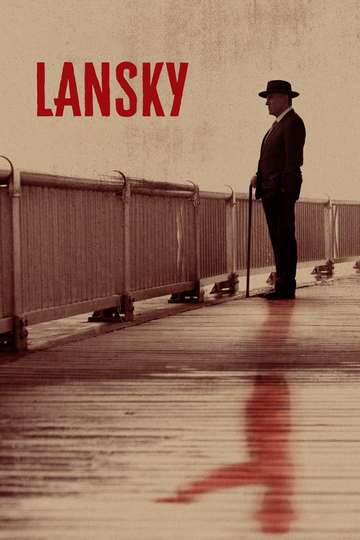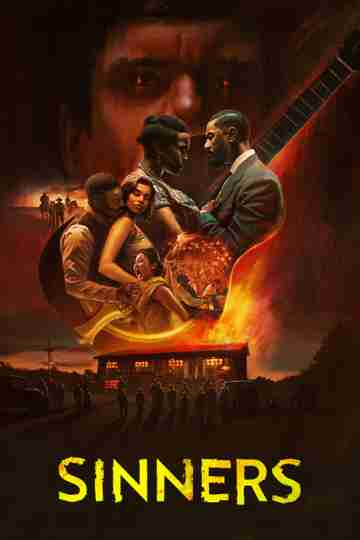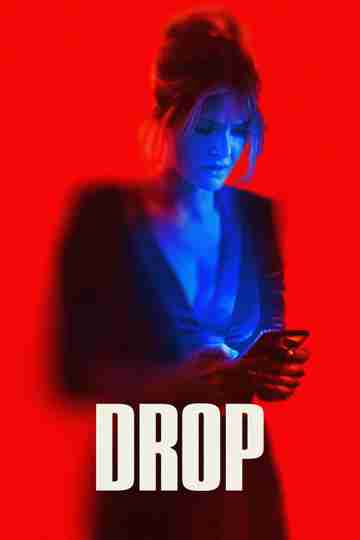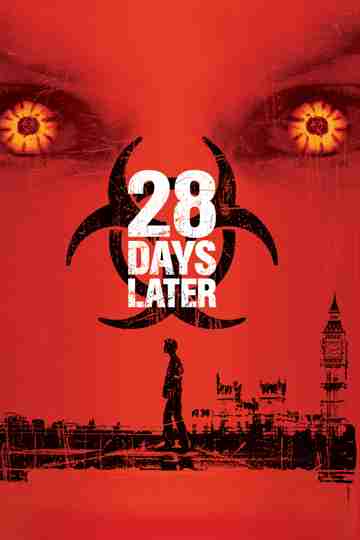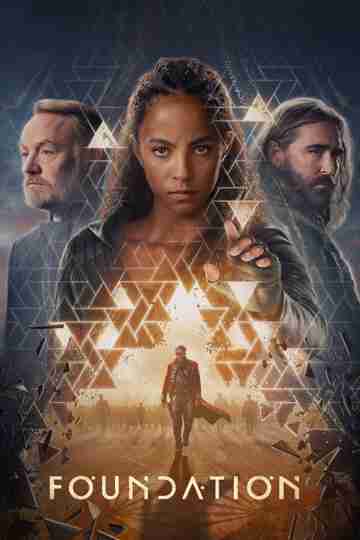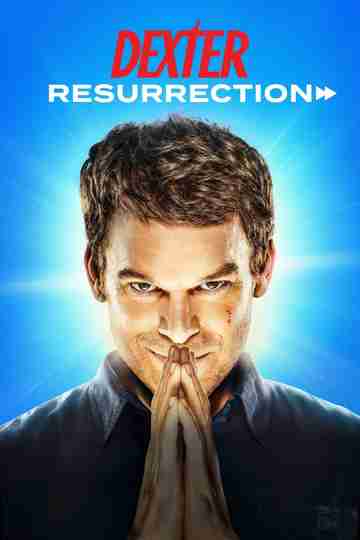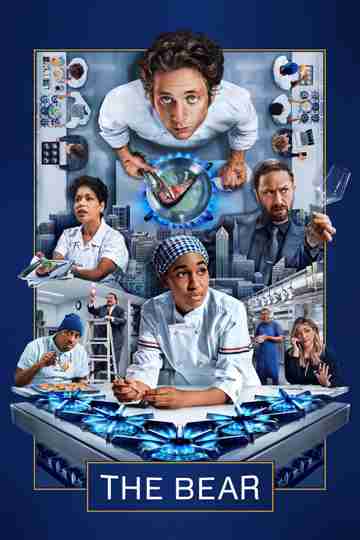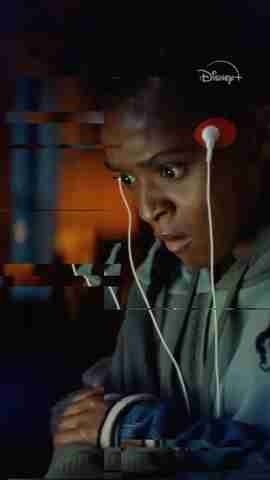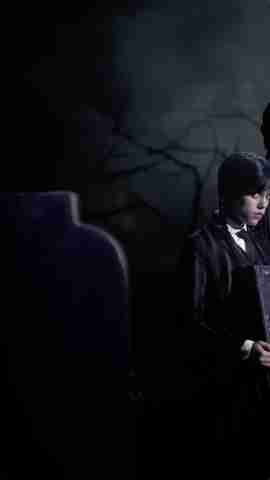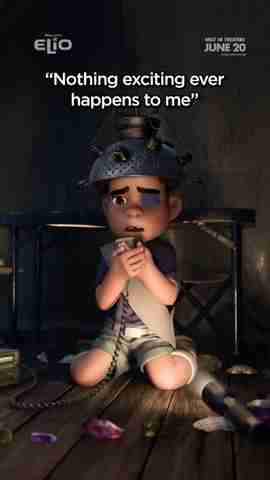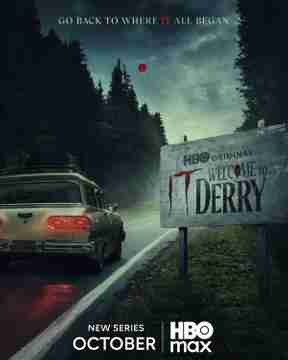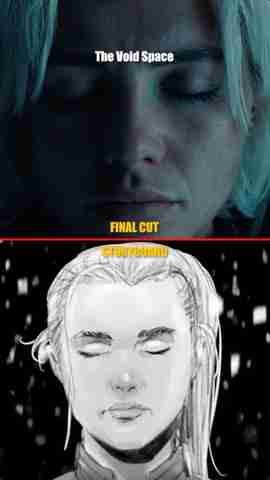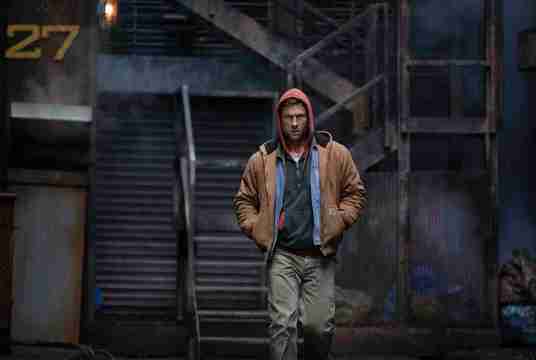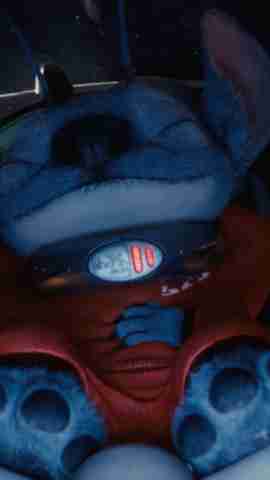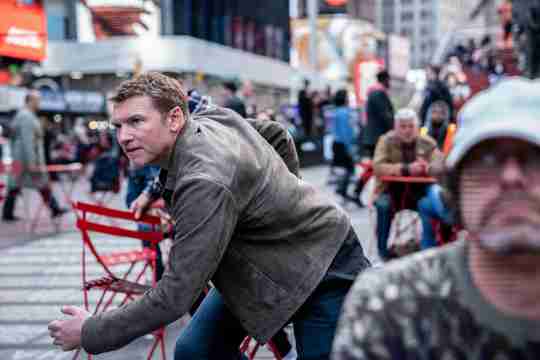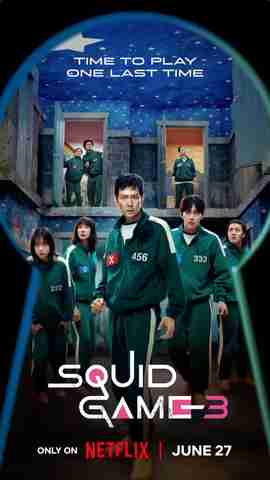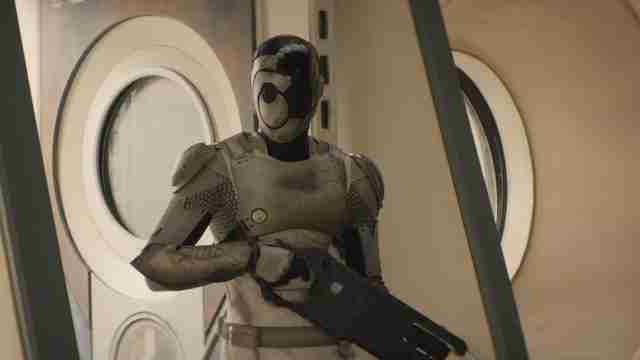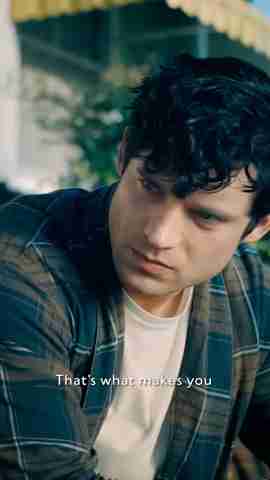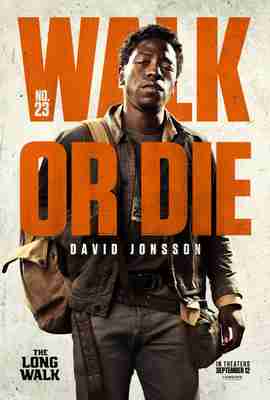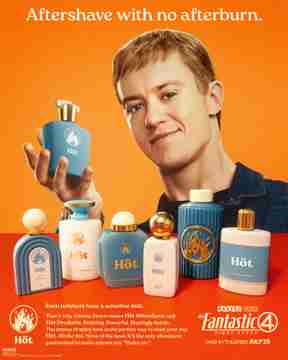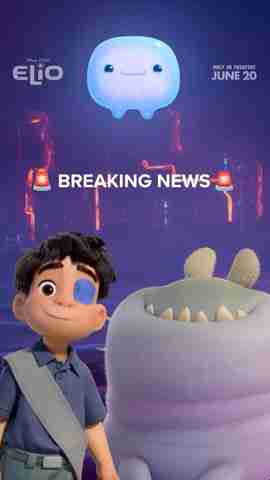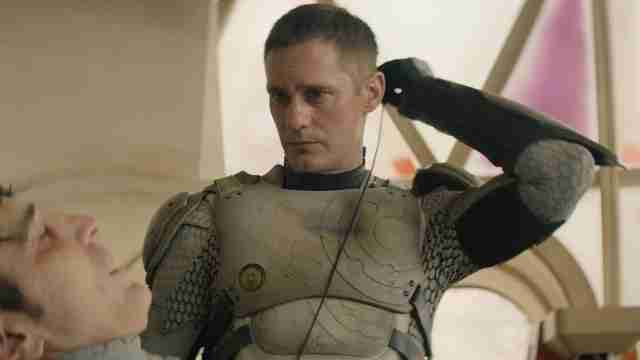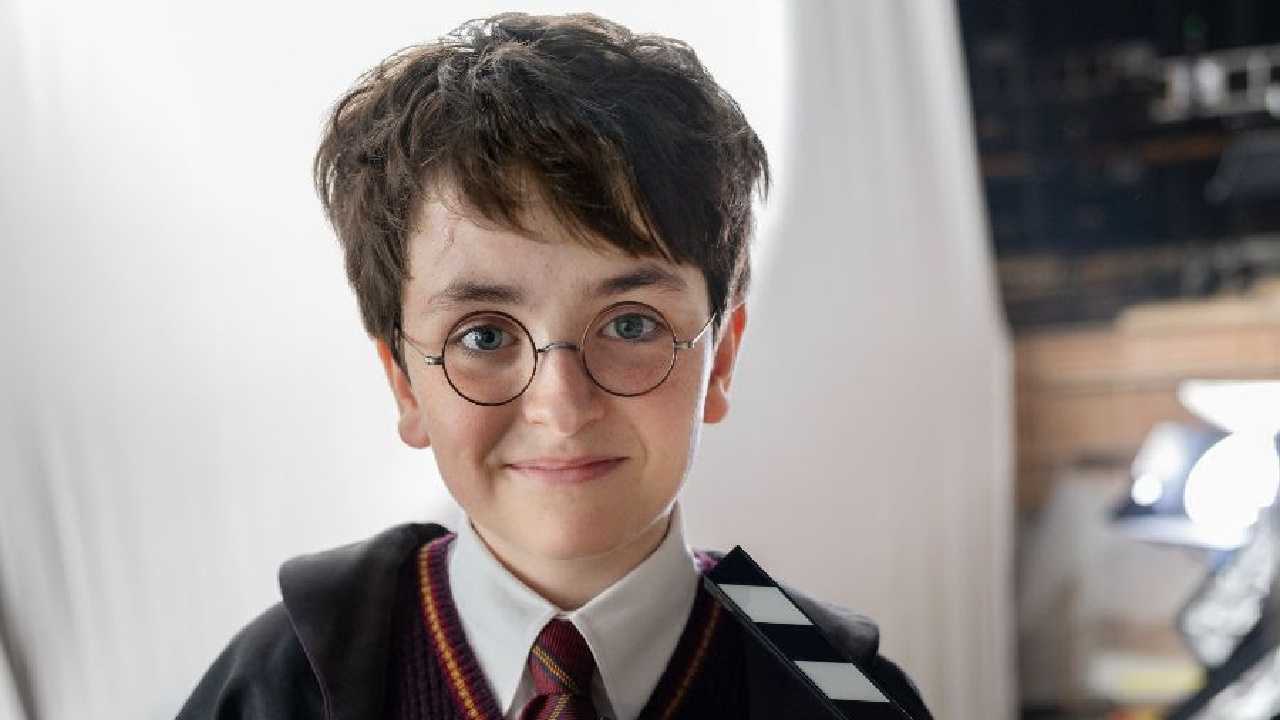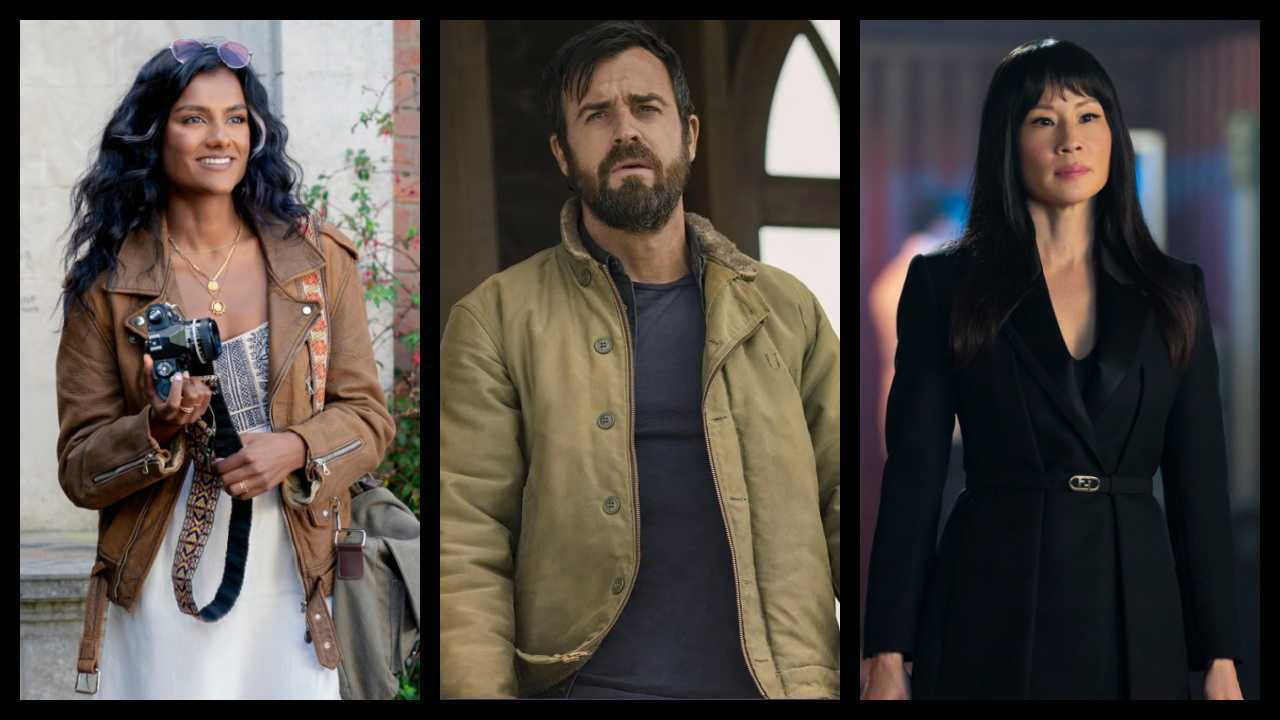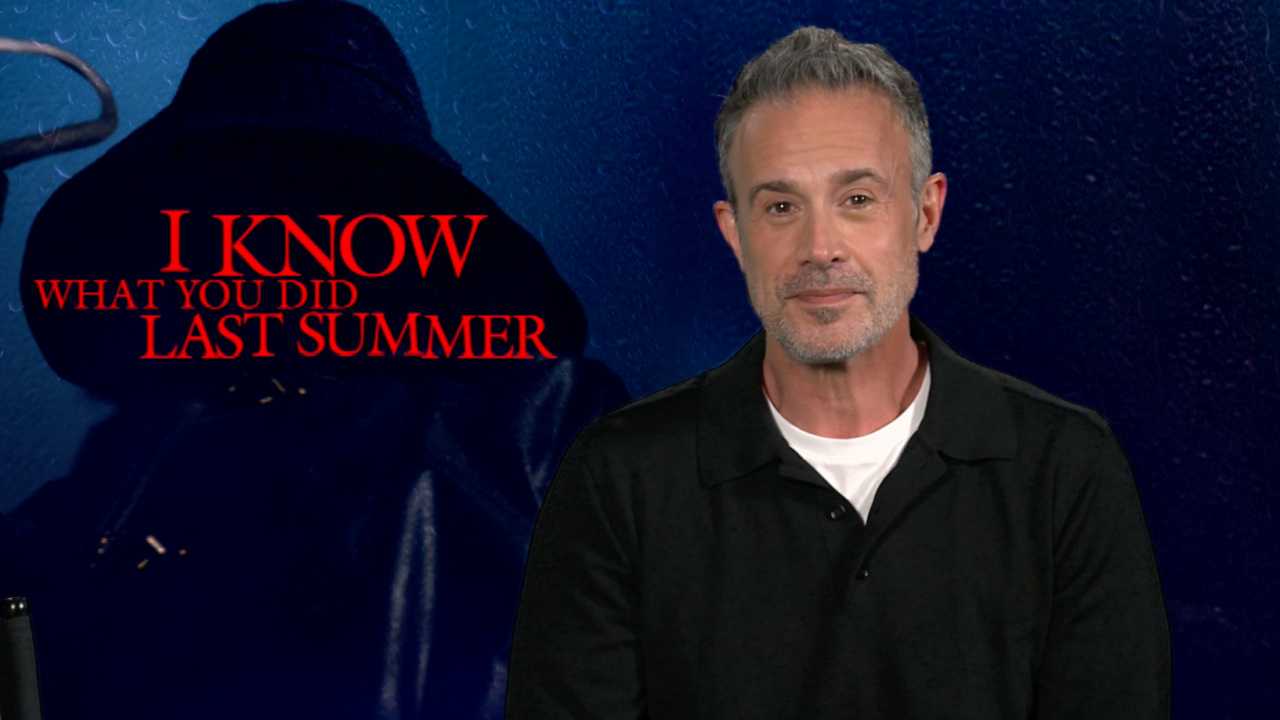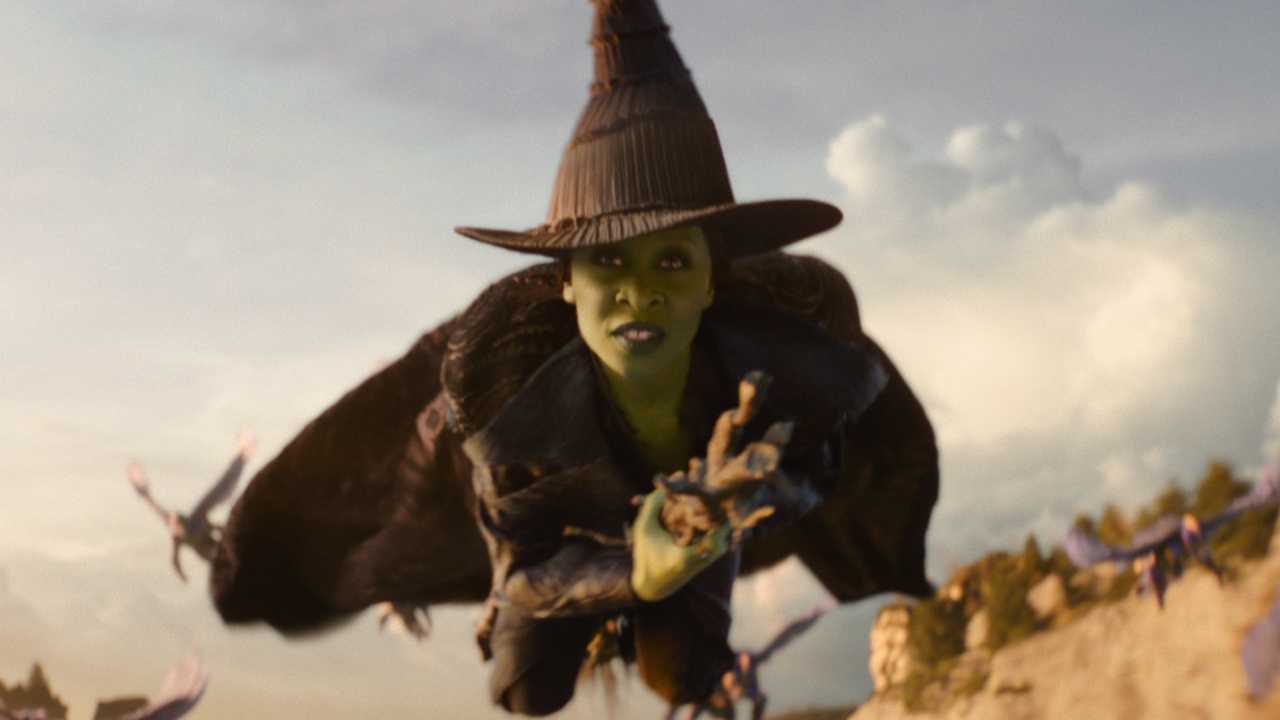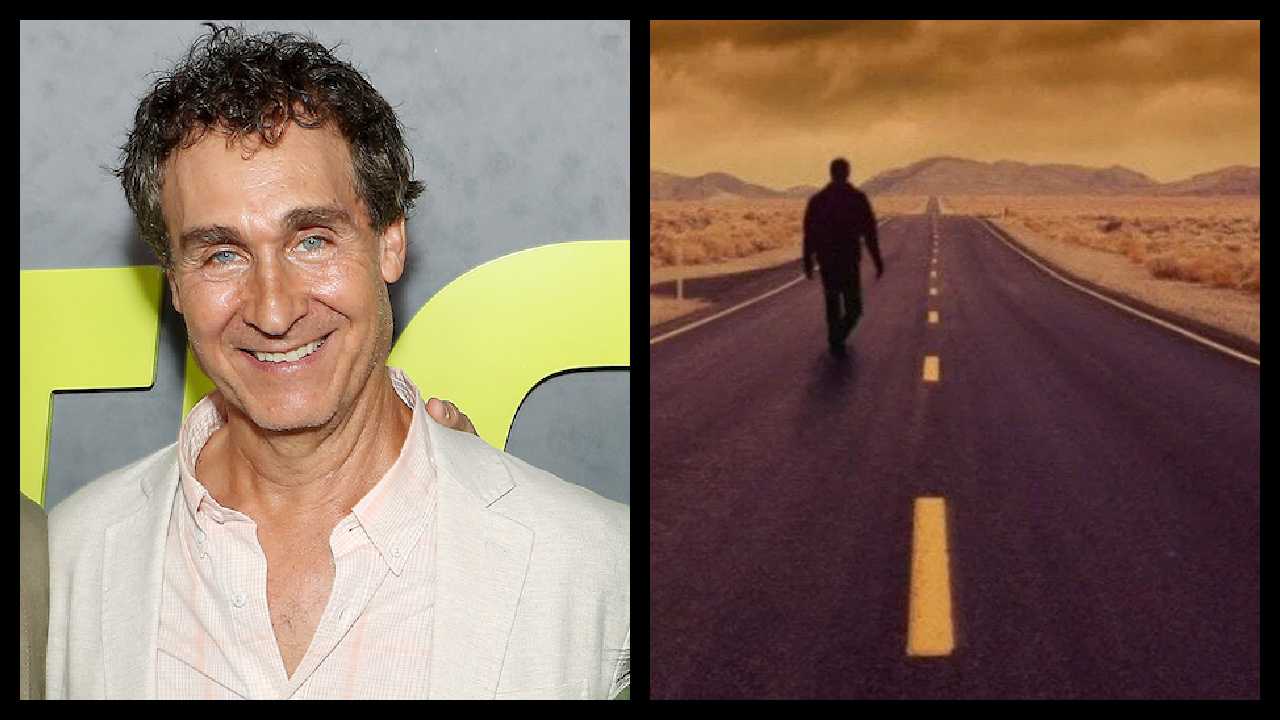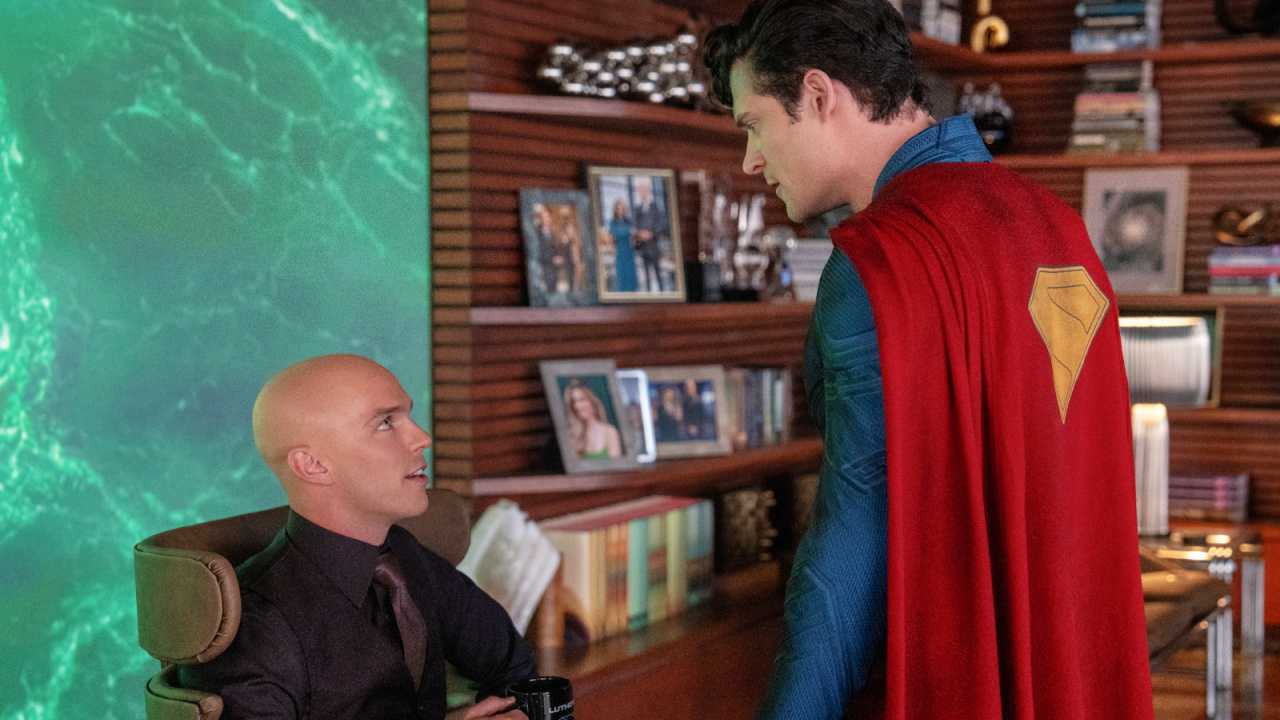Star Harvey Keitel and Writer/Director Eytan Rockaway Talk About Making ‘Lansky’
Veteran actor Harvey Keitel talks about finding the humanity in the people he plays, and what he found he had in common with Meyer Lansky. And writer/director Eytan Rockaway shares what it was like to work with Keitel, and how he wrote the story.
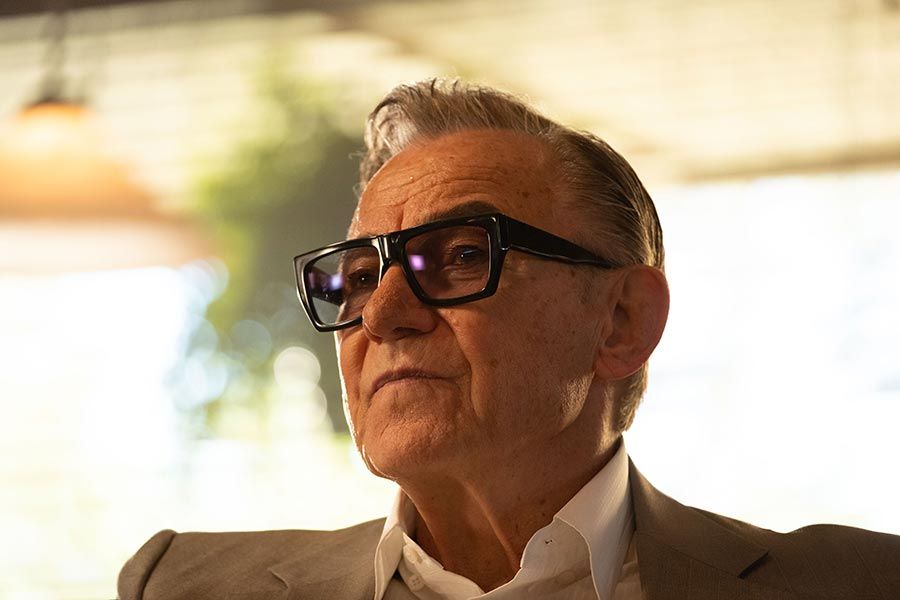
Harvey Keitel is the aging Meyer Lansky in 'Lansky'
Harvey Keitel's long and varied career has seen him working with iconic directors like Martin Scorsese on 'Mean Streets' (with Robert De Niro) and 'Alice Doesn't Live Here Anymore,' and Quentin Tarantino on 'Reservoir Dogs' and 'Pulp Fiction' and Jane Campion on 'The Piano.' Born and raised in Brooklyn, New York, Keitel studied at the famed Actors Studio under Lee Strasberg, whose 'Godfather: Part II' character Hyman Roth was largely inspired by real life organized crime figure Meyer Lansky. Now Keitel is playing the real man in 'Lansky,' and he and writer/director Eytan Rockaway sat down with Moviefone to talk about their new movie.
Moviefone: You've played gangsters before, real gangsters like Mickey Cohen and Angelo Bruno. What's your entry point to Meyer Lansky to give you something different to do?
Keitel: Well, I have to correct you, in a sense. I never played a gangster. I played a person, and there's a lot of aspects to being a person. So you never use them up trying to discover them in your own life to be a person. So the search is a good search when you're creating anything. In a theater, cinema, dance, music. You go to these forces that work on you and try to touch them in some way. Grab them.
MF: So what about Lansky as a person was interesting for you, as an artist, to bring to life and explore?
Keitel: Well, we have something in common. He is the child of immigrants. So am I. And I know a bit about that journey, coming from an immigrant family into America and trying to make a living. My parents tried to make a living, and that wasn't always easy. It was tough going.
And those great experiences growing up that way, having to steal once in a while from the supermarket, a potato to go put it into a fire in the lots. And you had baked potatoes there. And once in a while, stealing a little bit of this, a little bit of that. One time, a bar of chocolate dropped out of my coat. It scared the hell out of me. I thought I'd get locked up.
So all these life experiences that make up a life and how you get into a life. I mean, Meyer was a brilliant, brilliant man. Everything he created was like a Midas touch. Some of it was not for the good, but then again, he found employment for millions of people. And then again, he was a father. He had children. The wonderful, complicated journey.
MF: You were a kid around the era that Lansky would have really been hitting it big. What would a young Harvey Keitel think about playing an adult Meyer Lansky, years later?
Keitel: (Laughing) Harvey Keitel probably wanted to be Meyer Lansky as a kid, never mind play him! I mean, he was a mythical figure. And when one is looking to become something in life, there are all those waterways you travel down. And if you're lucky, you survive it, you survive the rush of water, and you don't drown in it. I did my time drowning and rescuing myself. Meyer did his as well. And he created a lot of good. At the same time, he did a lot of things that were not so good.
MF: Eytan Rockaway, your director, describes Lansky, and Siegel and some others, as these larger than life, almost mythical Greek or Norse figures. Is there a trick for you in finding the humanity and putting that aside?
Keitel: We make the myths. We make them. They were handed down, stories about living. So we are part of making the myths. And a lot of us would like to live the myths. By that, I mean, to make the hero's journey. And unless you read Parsifal... You know that the journey is fraught with danger, death, suffering, doing the good. He cures the sickly king by asking one question, "Uncle, what ails you?"
That is the essence of that myth. Arguably, they say, one of the great myths, if not the greatest one ever written. Who would know that unless we pass down these stories to each other? So Meyer Lansky, and the movie, I hope that we're passing down this journey that the myths are written about, that we all have to experience.
MF: You're playing a man who is very close to your own age now, who is telling his story. And at some point is, from time to time, passing on the things he's learned to the younger David Stone. Did that get you thinking about some of your own things that you pass on, especially when you're working with, say, younger directors like Rockaway?
Keitel: Everything. Everything. I mean, I'm a father. And I was that kid once, and everything in between. So I just read something, maybe it was last week. Someone wrote this line, "Teach your kids what you learned later on in life." So I think we have this natural instinct to do the right thing.
I think Meyer had an instinct to do the right thing, but he was caught up in the life he created for himself. He and Lucky Luciano, and the things that they did. So they were caught in a way. Or caught themselves, trapped themselves, to go on to figure it out. I like to think I would have sat down with Meyer, and we would have had some fun.
MF: When you see and hear stories about the men in this business and in that profession, so often it's focused on the Italians, and maybe less so personally on the Jews in that situation. And this movie really shows how important it was to Meyer to fight against the Nazis and support Israel. What's that mean to you? And was that something that helped it stand out?
Keitel: It means to me that that Meyer had an aspect of himself that was a righteous man. A man that wanted to do the right thing. He had suffered oppression in Europe. And now in America, you had the young Nazis raising money to support their cause, the Nazi cause. And he wanted to put a stop to that. So who is Meyer Lansky?
That guy over there, that is me. I mean, I once asked this woman I know, this writer ... because we were talking about killing somebody. And this person said, "You never kill anybody. You are not allowed to kill anybody. I would never kill anybody, no matter what."
So of course, the example we give everybody is: Okay, there you are... And this Nazi has a gun to a child's head, and he's about to pull the trigger. And you can kill him and save this child's life. What do you do?" Let me ask you that question. What do you do?
MF: I'd probably pull the trigger, but probably feel bad about it.
Keitel: I would too. I'd feel bad about it, but I would also feel I did the right thing. So, we're not so one dimensional. It doesn't have to be this or that. It could be this and that. Up and down, in and out, sideways. We haven't gotten it figured out yet. We're still an experiment. As you could tell, if you turn on the news.
MF: You've been doing this for 55 years and some change, at least, and parts of the process have evolved. What's changed for you, and what's changed that's been good?
Keitel: Awareness. Awareness. Awareness. That, for me, is the goal.
MF: Awareness of others that are working with you?
Keitel: Awareness of the complexity of being on the planet. Awareness of doing the good. Awareness of protecting what's worthwhile, and suffering the evil that exists. Trying to make a difference. It's right upon us now. You know that.
'Lansky' is the second feature film for writer/director Eytan Rockaway. He spoke to Moviefone about how long it took to get the movie made, and how his father inspired him to write the story.
Moviefone: What's it like working with a legend like Harvey Keitel?
Eytan Rockaway: Tt's an amazing experience, probably one of the greatest experiences of my life. I mean, he's a legendary actor. And nerve-wracking the first day on shoot, you have Harvey Keitel doing the first take, looking at you, and he's just warming up and asking you, "How was it?" And then you have to say, "Well, it was great, but maybe do another one." I mean, how are you going to say to a guy like him like that?
MF: What's it take to get past that? Because at some point, you're there to tell him what to do, you're directing the film.
Rockaway: Well, I mean, for a guy like that, you let him do his thing, and you just guide them through it. That's usually how it works with the actors. But he's such an amazing human being. I mean, the first day on set, before we started shooting, he walked up, I think there were like 50 people on set or more.
And he just shook every single person's hand, everybody from making the coffee to the caterer, to the grip, to the gaffer, until he didn't shake every single person's hand we didn't do the first take. And that's an indicator of what type of person that he is.
And once you get him, we became very, very good friends. I love the guy, see him as a mentor, especially when you have such knowledge to somebody like that, an actor like that, you just take it all in.
MF: Meyer Lansky's shown up so many times on film, and so many of these gangsters have been covered on film. What's it take for you, as a writer, to really focus on this as a separate story and make it its own story?
Rockaway: I tried being objective as possible. What interests me was the question of morality of the story. His morality. As he was the type of person that did good, he did a lot of bad, but he always trod that thin gray line between the two. And that's what interests me. And luckily, I had my father. My father interviewed Meyer last year before he passed away. So the character of David Stone that Sam Worthington is playing is based on their interviews. So I had a good head start on that.
MF: Meyer Lansky’s Jewish identity definitely motivates some of his actions, like taking on the Nazis, contributing to Israel. Historically, we see so much of the Italian gangsters and Irish gangsters. Was it important to you to focus on what being a Jew actually means to Lansky?
Rockaway: He grew up in Russia where Jews were prosecuted and that changed his life. It traumatized him. Then he arrived in New York. He was poor. Jews were second-class citizens. Everybody in America, or most of us, are children of immigrants.
And it was important to me to show this is an important piece of American history. Doesn't matter if you're an Irish immigrant, Italian immigrant, Jewish immigrant, Asian immigrant. I mean, this is the story of this country. And he chose his path, but a lot of his path was because of the life that he led and the prosecution of Jews across Europe and America.
MF: How did the casting process go? And how did he get attached?
Rockaway: Well, we did have a casting director, Billy Hopkins, Ashley Ingram were great casting directors, but he was... Before we even had a casting director, a friend of mine, Danny Abeckaser who also plays the role of the young FBI agent, worked with his daughter on a movie, and he got the script to him, and he read it, and then he met with me.
And yeah, and then he got attached to the project. But it took me five years to make this movie, so from the moment I gave him the screenplay three years passed, and we live in the same area in New York and I used to see him in the streets. And the first year I used to see him like, "Hey Harvey, it's the director of Lansky." He's like, "Hey, hey." The second year, he was like, "The guy is annoying already."
The third year, he was like, "This is never going to happen. This guy is like a stalker." When we finished shooting the movie, he gave me a book by Kazan, and he wrote, "To my dear friend Eytan, the only stalker I was happy that ever got caught up with me." So, yeah. But he was a trouper, he stayed attached to the project all along. And I mean, if it wasn't for him, we wouldn't have had a movie about Meyer Lansky.
MF: When you're casting a character, or when you're working on a story about a character, you're showing you different parts of their lives. What are you looking for in the two different actors, the younger version and the older version, that's going to allow you to work with them, to show the same person?
Rockaway: Well, I do look out for some similarities visually, but what we did in this movie is that we were lucky enough to shoot all of Harvey's scenes first. And then I took the dailies and I showed it to John Magaro, and then he could kind of emulate that a bit.
But I do try to get as close as possible, at least with the nuances of it all. Obviously there were two different types of people, like when he was in his twenties, thirties, and forties, he was very different from he was in his eighties.
MF: You shot most of this in Alabama, right?
Rockaway: Yeah, we shot all of it in Alabama. It was my first time in the deep South and I loved, loved Alabama. Some of the sweetest, hardest working people I ever met. I want to back to visit the beautiful place.
And yeah, the reason we shot in Alabama was because they have the Gulf Shores there in Orange Beach, which is very similar to Miami in the 1980s. But then they have cities like Mobile, which have these old buildings from the 1930s and forties that are beautiful.
And we shot the interiors there. So it played out as New York back in the day. And yeah, I mean, we shot it in 20 days, which was crazy, but we managed to do that. I had an amazing crew.
MF: This is a low-key eighties environment, as opposed to the Miami Vice-style bright colors, big-houldered suits. How closely did you work with your costumer, and especially your automotive person, to really nail that?
Rockaway: Well, we worked very closely. All of my heads of departments were amazing. Everything from production design, wardrobe, to makeup, we worked very closely. I did try giving a real feel to Miami back in the day, even in the music, there was a lot of synthesizer, 1985 music throughout the soundtrack that you mix your classes, and you could give it the feel and give it that modern type of feeling. Yeah, we tried making it as real as possible.
MF: One of the shots I love in this movie is looking up through the typewriter keys at David. How did you guys achieve that one?
Rockaway: We broke the typewriter and put the camera underneath and just had him type it. And we had a problem breaking the typewriter, so it took us 45 minutes to open it apart and everybody was like, "We have to move on, and we have to get this typewriter shot!" So we broke it and put the camera, put it over the camera and got it.
MF: You mentioned that David is a somewhat based on your own father's experience. What did your father talk to you about having talked to Meyer Lansky?
Rockaway: Yeah, so when I say it was loosely based, obviously not with the FBI and the down-on-his-luck writer, all of that, I took creative liberties. But his research and meeting Lansky, for him, was very interesting.
Obviously, I don't think he was as objective as I was, because once you meet a person, especially when they're in their eighties, and they remind you of your grandfather, so it's a bit different, but it was very interesting to get his perception on it and his perspective.
And I definitely leaned on his research that he did, and doing research on organized crime in America for 40 50 years.
'Lansky' is now in theaters and on demand.
